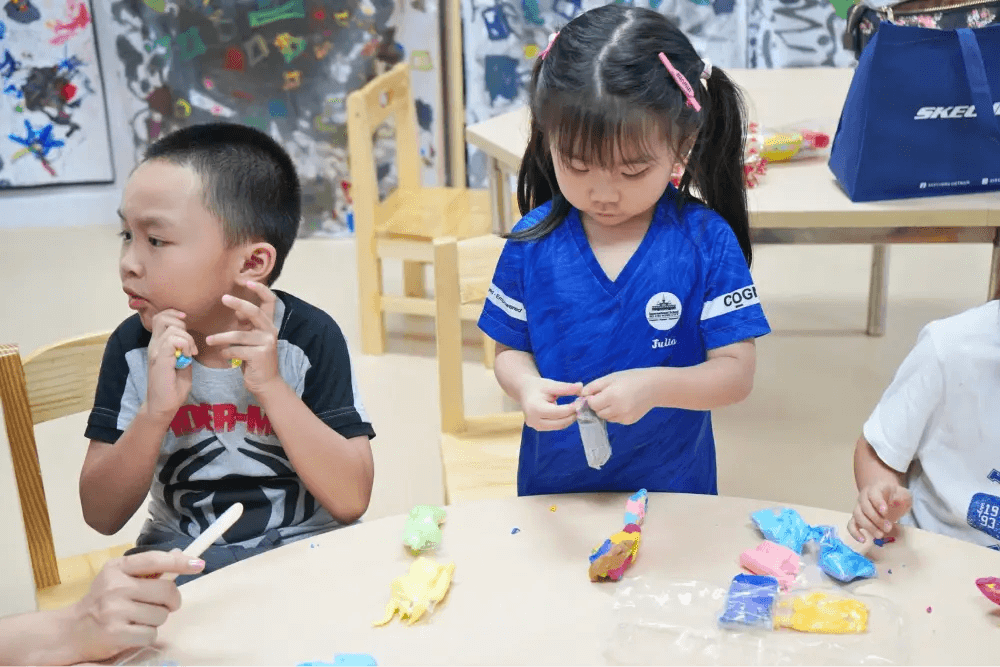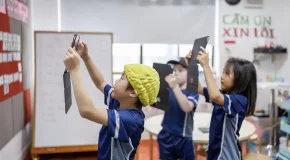How to Stay Organized for School: A Guide for Students and Parents
Being organized for school is essential for both students and parents to ensure a successful and stress-free academic year. If you know how to be organized for school with the right strategies, you can stay on top of assignments, manage time effectively, and create a smooth daily routine that supports learning and growth. In this guide, we’ll provide practical tips and advice to help students and parents work together to establish good organizational habits, keep track of important tasks, and create an environment where academic success can thrive!
1. Set a Regular Homework Routine
Students can learn how to stay organized in school by setting a regular homework routine. Parents should review all assignments with their children to confirm understanding and ensure the availability of necessary materials. Then, ask children to estimate the time required for each task. If they need assistance, determine this early so that the homework schedule synchronizes with parent availability.
2. Get Everything Ready The Night Before
Mornings can be hectic, with the rush to get everybody to leave the house on time. To ensure a smoother start, children should complete their preparations the night before. Their tasks include packing backpacks and preparing lunches. Parents can help by creating a “Launching Pad” where their children place everything for school.
Going to bed at a reasonable time is an effective strategy for how to be organized for school. It would be better to set multiple alarms to prevent late starts. Confirming transportation plans the night before can also alleviate stress, ensuring the travel arrangements are in place.
3. Improve the Sleep Schedule
A consistent sleep routine helps the body establish a natural rhythm for falling asleep and waking up, which can prevent fatigue and exhaustion. Activities like warm baths and cuddling with parents allow children to unwind and prepare for restful sleep, signaling to the body that it is time to rest.
Another method on how to be organized for school is focusing on sleep hygiene. Regular exercise, limiting extracurricular activities, avoiding caffeine, and creating a conducive sleep environment can improve sleep quality in the future. Following such habits makes children well-rested and ready for a productive day at school, which helps them remain organized.
4. Do a Weekly Clean-Up
A weekly clean-up reinforces the habit of tidying up and maintaining order, making it easier for children to allocate time for organization. Parents can implement these tips on how to be organized for school to encourage this good habit:
- Give children age-appropriate tasks: Assign cleaning tasks based on your child’s age. For example, toddlers can pick up toys, while older children can set the table.
- Keep it consistent: A regular clean-up routine makes tidying up a habit. Parents can set a specific time each day for cleaning to help children accept and anticipate the task.
- Set a timer: Challenge your children to finish their tasks before the timer goes off. This approach adds an element of excitement to the clean-up process.

5. Set Personal Rules
Learning how to organize school work is crucial for academic success. Students can set personal rules to develop their organizational skills. Here’s how:
- Set deadline: Set a deadline at least two days before the actual due date to reduce confusion, manage unforeseen issues, and avoid last-minute work.
- Don’t multitask: Multitasking can be inefficient, often taking 50% more time. Hence, focus on one task at a time to increase efficiency.
- Break down big tasks into smaller ones: Breaking a big task into smaller steps reduces overwhelm. Children can then complete each part every day to make manageable progress.
6. Use Tools to Stay Organized
Many school supplies designed to keep learning materials in order can enhance how to be organized for school. For example:
- A planner helps keep track of schedules and assignments so students don’t miss deadlines.
- Folders are useful for storing and categorizing papers.
- A multi-pocket backpack keeps items separately, enabling students to locate what they need quickly.
- A pencil pouch keeps writing utensils to prevent loss.

7. Check The Agenda Note
A paper agenda assists students in tracking important dates, such as test schedules and homework deadlines. By writing things down, they can easily visualize their commitments and manage their time effectively.
The agenda note also helps balance academic tasks with extracurricular activities. For example, students can schedule club meetings in advance while allocating time for completing projects. During weekly check-ins, they should review these schedules with parents and peers to ensure they are on the right track.
8. Maintain Consistency
Consistency is key to how to be organized for school. To ensure consistency, students should schedule study sessions during their peak performance times and incorporate regular breaks to maintain optimal productivity.
Those with inconsistent performance should try advanced warnings to enhance their engagement in class. For example, parents may say, “In a few minutes, I will ask you to review the first two questions in your homework. After that, we will work together to diagram those sentences.” This approach helps children prepare mentally and emotionally for upcoming tasks.

Learn How to Be Organized for School with ISHCMC
Understanding how to be organized for school, parents can implement multiple strategies to help their children manage their workload and stay focused. ISHCMC supports students’ organizational skills by providing a structured and globally recognized framework. Our programs are divided into three sections:
- International Baccalaureate Primary Years Programme (IB PYP) – For students aged 3 – 12: We emphasize student-centered learning and nurturing young learners as active participants in their education.
- International Baccalaureate Middle Years Programme (IB MYP) – For students aged 11-16: We integrate academic challenges with real-world connections to prepare students for future studies and life beyond school.
- International Baccalaureate Diploma Programme (IB DP) – For students aged 16-19: We help students develop essential skills for university and professional success.
ISHCMC’s comprehensive programs foster academic success and personal growth in each student. To experience the difference, apply to ISHCMC today!






